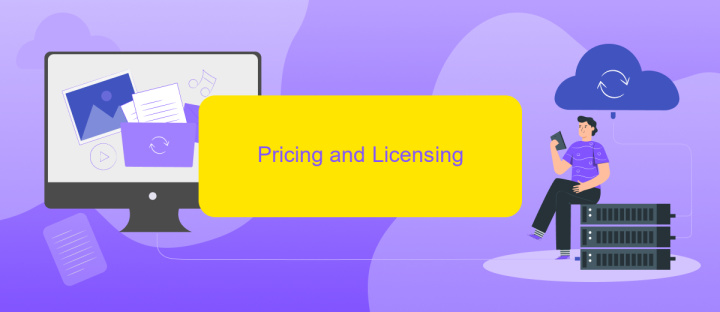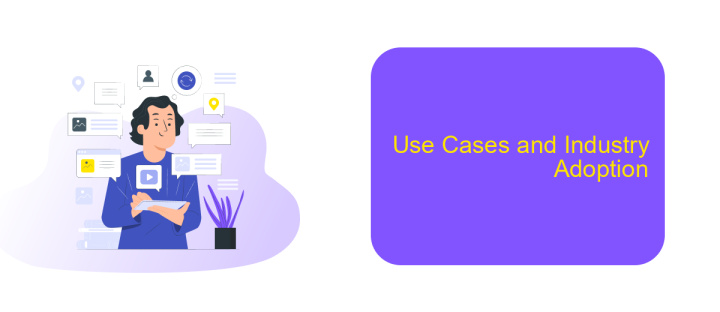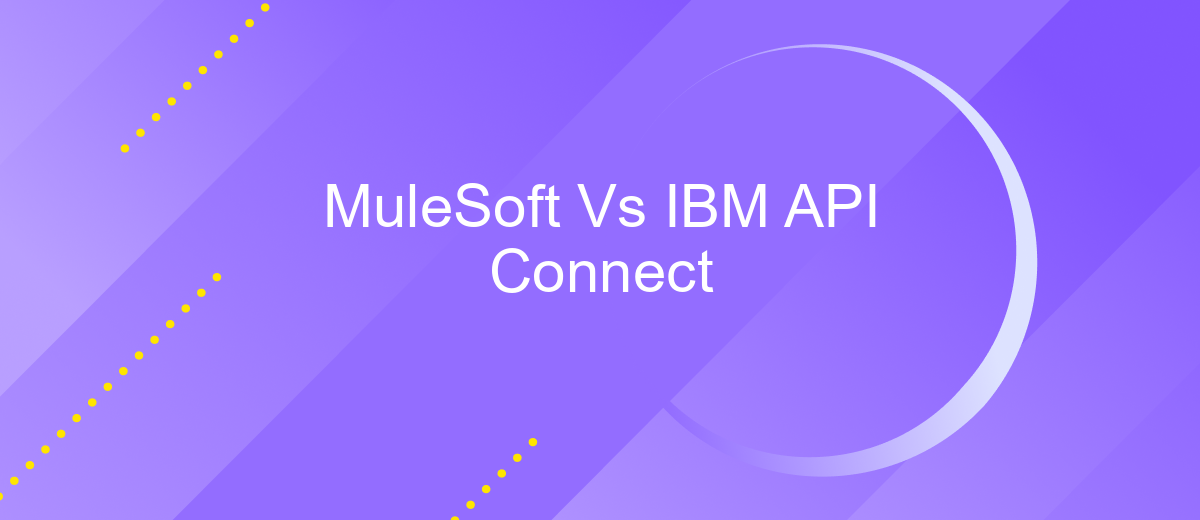MuleSoft Vs IBM API Connect
In the rapidly evolving landscape of API management, choosing the right platform is crucial for seamless integration and scalability. This article delves into a comparative analysis of MuleSoft and IBM API Connect, two leading solutions in the market. By examining their features, functionality, and overall performance, we aim to provide insights that will help businesses make an informed decision.
Introduction
In today's rapidly evolving digital landscape, businesses are increasingly relying on robust API management solutions to streamline their operations and enhance connectivity. Two prominent players in this space are MuleSoft and IBM API Connect, both offering comprehensive tools to manage, secure, and analyze APIs. Understanding the strengths and weaknesses of each platform is crucial for organizations aiming to make an informed decision.
- MuleSoft offers a unified platform for building and managing APIs, with a strong emphasis on integration and connectivity.
- IBM API Connect provides a full lifecycle API management solution, focusing on security, scalability, and analytics.
- Both platforms support various deployment models, including on-premises, cloud, and hybrid environments.
- Services like ApiX-Drive can further enhance integration capabilities by automating data transfer between different applications and systems.
Choosing between MuleSoft and IBM API Connect depends on specific business needs, existing infrastructure, and long-term goals. By evaluating the unique features and benefits of each solution, businesses can ensure they select the right API management tool to drive digital transformation and operational efficiency.
Architecture and Features Comparison

MuleSoft and IBM API Connect offer robust architectures designed to streamline API management and integration. MuleSoft’s architecture is built on its Anypoint Platform, which provides a unified solution for API design, development, and management. It leverages Mule runtime engine to enable seamless integration across various systems and applications. Key features include API analytics, policy management, and a rich set of connectors for integrating with third-party services. In contrast, IBM API Connect offers a comprehensive API lifecycle management suite, integrating with IBM Cloud for enhanced scalability. It provides tools for API creation, testing, and monitoring, along with robust security features such as OAuth and OpenID Connect for secure API access.
Both platforms excel in facilitating integrations, but MuleSoft’s extensive connector library, including support for ApiX-Drive, makes it particularly versatile for diverse integration needs. ApiX-Drive enhances MuleSoft’s capabilities by offering an easy-to-use interface for setting up integrations without coding, making it accessible for non-developers. IBM API Connect, on the other hand, is well-suited for enterprises already invested in IBM’s ecosystem, offering seamless integration with other IBM services. Ultimately, the choice between MuleSoft and IBM API Connect depends on specific business requirements and existing technology stacks.
Pricing and Licensing

When comparing the pricing and licensing models of MuleSoft and IBM API Connect, it's essential to consider the specific needs and scale of your organization. MuleSoft offers a subscription-based pricing model, which includes various tiers based on the number of users, API calls, and additional features. This flexibility allows businesses to scale their usage and only pay for what they need.
- MuleSoft: Subscription-based, tiered pricing based on usage.
- IBM API Connect: Subscription-based, with options for annual or monthly billing.
- Both platforms offer enterprise-level plans with advanced features and support.
IBM API Connect also follows a subscription-based model but provides options for both annual and monthly billing, which can be beneficial for budgeting and financial planning. Additionally, both MuleSoft and IBM API Connect offer enterprise plans that include advanced features, enhanced support, and additional customization options. For businesses looking to streamline their integration processes, tools like ApiX-Drive can complement these platforms by providing easy-to-use integration services, thereby enhancing overall efficiency and reducing manual workload.
Use Cases and Industry Adoption

MuleSoft and IBM API Connect are robust platforms widely adopted across various industries for their API management and integration capabilities. MuleSoft, known for its Anypoint Platform, excels in providing comprehensive tools for API creation, deployment, and management, making it a popular choice in sectors like finance, healthcare, and retail. IBM API Connect, on the other hand, offers a powerful suite for API lifecycle management, with strong security features and analytics, favored by enterprises in banking, insurance, and government.
Both platforms are designed to streamline integration processes, allowing businesses to connect disparate systems and data sources efficiently. This is particularly crucial for organizations undergoing digital transformation, where seamless data flow and connectivity are essential. Tools like ApiX-Drive further enhance these capabilities by offering easy-to-use, no-code integration solutions, enabling businesses to automate workflows without extensive technical expertise.
- Finance: Real-time data integration and secure API management.
- Healthcare: Interoperability between electronic health records and patient management systems.
- Retail: Connecting e-commerce platforms with inventory and CRM systems.
- Government: Ensuring secure data exchange and compliance with regulatory standards.
Industry adoption of MuleSoft and IBM API Connect highlights their effectiveness in addressing complex integration challenges. By leveraging these platforms, along with supplementary tools like ApiX-Drive, organizations can achieve greater operational efficiency and innovation, ultimately driving business growth and customer satisfaction.
Conclusion
In conclusion, both MuleSoft and IBM API Connect offer robust solutions for API management, each with distinct advantages tailored to different organizational needs. MuleSoft shines with its comprehensive Anypoint Platform, which provides extensive integration capabilities and a user-friendly interface, making it ideal for businesses seeking a unified solution for API management and integration. On the other hand, IBM API Connect excels with its strong security features, scalability, and seamless integration with other IBM products, making it a preferred choice for enterprises with complex infrastructure requirements.
Ultimately, the choice between MuleSoft and IBM API Connect should be guided by your organization’s specific needs, budget, and existing technology stack. For those looking for an additional layer of ease in managing integrations, services like ApiX-Drive can further streamline the process by automating data exchange between various applications and APIs, enhancing productivity and reducing manual workload. By carefully evaluating the strengths and limitations of each platform, businesses can make an informed decision that aligns with their strategic goals and operational demands.
FAQ
What are the main differences between MuleSoft and IBM API Connect?
Which platform is easier to use for beginners?
Can both MuleSoft and IBM API Connect be used for enterprise-level integration?
How do MuleSoft and IBM API Connect handle security?
Are there any automation tools that can help with the integration setup for these platforms?
Time is the most valuable resource in today's business realities. By eliminating the routine from work processes, you will get more opportunities to implement the most daring plans and ideas. Choose – you can continue to waste time, money and nerves on inefficient solutions, or you can use ApiX-Drive, automating work processes and achieving results with minimal investment of money, effort and human resources.

